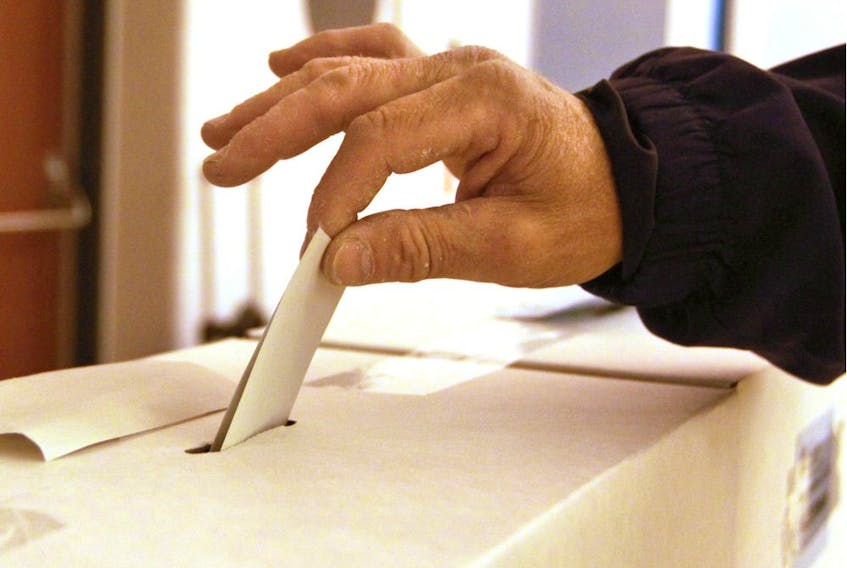When Jack Novack, whom I’ve written about before in this space, told me that the voter turnout in municipal elections in this province is abysmal, I decided to check the numbers.
Naturally, the Dalhousie University professor, who specializes in local government, knows his stuff: In 2016, 46.5 of Nova Scotians took part in municipal elections, which was actually higher than the 42.6 per cent of Nova Scotians in 2012, but nothing to brag about, nothing at all.
Geographically, engagement was all over the map. In the last municipal election, turnout in Halifax was only 32 per cent, compared to more than half of eligible voters in the town of Berwick who cast a vote.
On the other hand, turnout in the district in 2016 was 29.5 per cent, while in East Hants — which, I’ve read, has opted for a voter outreach and engagement strategy to improve turnout for the 2020 election -- it was a piddling 25.4 per cent.
According to the experts like Novack, lower turnout in municipal elections is often the result of uncontested seats, where the only candidate is acclaimed, which, for example, could explain the low turnout in Halifax where four councilors were acclaimed four years ago.
Whatever the reason, those rock bottom numbers are a worrisome thing according to Novack, who calls “strong and viable” local government, "the foundation of democratic values” as well as the “cornerstone of provincial and federal governments.”
Federal policies may seem far away from our everyday existence. However, stuff that happens on the local level — when your recyclables are collected, how wide the new bicycle lane will be -- affects the daily lives of those who live there, proving, in a roundabout way, Novack’s axiom that “the strength of a community is the sum total of all the contributions of the people within it.”
“I don’t want a community made of Monday morning armchair critics, who are critics but not participants. If you are not participating you are not contributing to democracy.”
- Jack Novack, municipal government expert
We were talking because, as Jim Vibert pointed out in these pages recently, municipalities are worried that coronavirus concerns will result in even lower voter turnout than usual on Oct. 17, municipal election day.
Even if we were not spooked by the pandemic, Novack would be beating the drum, talking about the importance of being personally engaged in municipal politics, by voting of course, but also by running for office since elections he says are “public conversations on what is important.”
“I don’t want a community made of Monday morning armchair critics, who are critics but not participants,” he told me earlier this week. “If you are not participating you are not contributing to democracy.”
He’s been talking along these lines for much of his career: the way that becoming part of local government is a training ground for bigger roles in the provincial legislature and even the House of Commons, but, more importantly, how, by being part of local government, a person develops “the habits of good citizenship.”
So, Novack is happy that the new Your Decision website, created by Dal’s local government program, went live on Wednesday.
I had a look. The site offers a series of webinars, intended to encourage individuals to become more politically active in local politics.
There you can learn why local politics matters, how it works, what being an elected official is like, and even how to get elected.
Novack has his motives for launching the site. We need to get younger people involved he says. More women need to run, along with more aboriginal and Black folks, more new Canadians, and more people from the disabled community.
“Have you ever looked at a council picture?” he asked me. “Too many older white males coming from British origins.”
Over the years, he’s suggested changes to pave the way for a new generation of elected officials, among them, term limits, since incumbency counts for a huge amount when running for office.
He points out there are many paths to becoming an engaged citizen. Teach an immigrant to read English down at the local library, he says. Join a volunteer board. The point is to do something.
”People tend to self-disqualify from these positions, thinking they don’t have the right stuff,” he said.
Instead all you really need to run is “average intelligence,” along with a “commitment and passion for the community,” as well as enough free time.
“One thing people tend not to appreciate is the amount of time these things take,” he said. “They are major commitments.”
As worthwhile things tend to be.








